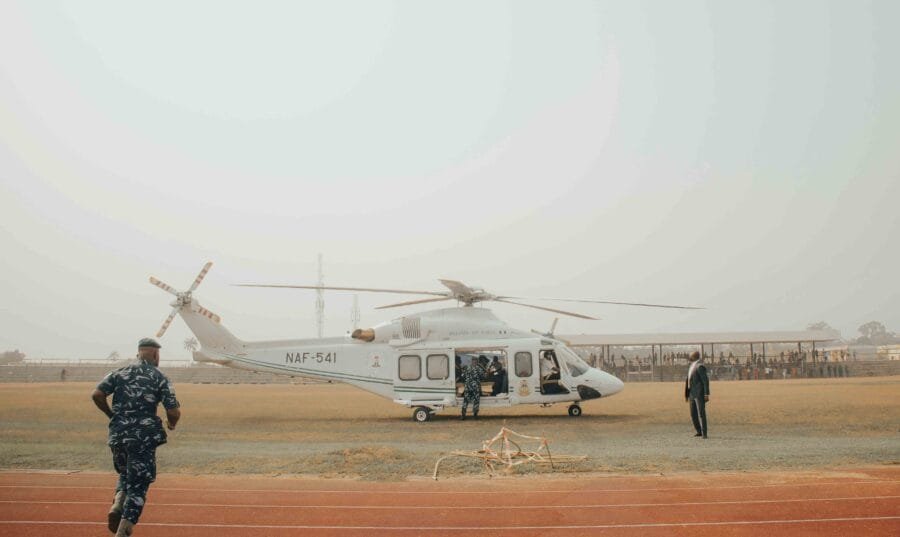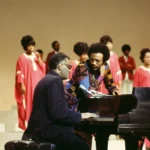The Decline of Local Touring in the Nigerian Music Industry

There was a time in the Nigerian music industry when local touring played a significant role in contributing to its growth. Star Music’s “The Trek” was one of the most successful and consistent music platforms by any Nigerian brand. The multi-city annual tour, held in over 25 Nigerian cities. It featured over 50 musicians and reached over 100 million radio and TV audiences. The famous “shine shine bobo” catchphrase, popularized by the host Gbenga Adeyinka, also played a pivotal role in making the nationwide tour a much-anticipated event.
Cities like Makurdi, Owerri, Warri, and others always prepared to welcome the biggest stars in the country. Campus tours, such as the “2face and Friends Campus Tour,” sponsored by Etisalat or Glo, were also prominent. However, with time, these tours gradually fizzled out. The global explosion of Afrobeats helped artists find new markets and sustain momentum. Presently, these tours are not as prevalent for various reasons.
Firstly, the economic factor has played a substantial role. Afrobeats has become a global phenomenon, enabling artists to earn more abroad than within the country. For instance, an artist might receive five thousand dollars for a club appearance in America. This is equivalent to five million naira in today’s exchange rate. Such lucrative bookings may be challenging to secure within Nigeria, prompting artists to capitalize on the international market for increased earnings. This economic shift has reshaped the priorities of many artists and made local tours less economically viable.
Infrastructure is another significant hurdle for local touring in Nigeria. The poor state of the transport system, dilapidated roads, and the absence of direct flights to most cities make travel less appealing. Moreover, many cities lack suitable venues for tour events. This lack of infrastructure makes the transport of additional facilities like sound equipment, lights, and stages necessary. So if an artist is coming to a place like Lafia in Nassarawa state, he most likely needs to find a way to ship in these facilities to deliver a memorable performance. This logistical challenge poses a considerable barrier, discouraging artists and record labels from investing in local tours.
Security concerns have also contributed to the decline of local tours. Kidnappings on highways and attacks in various cities have raised safety concerns. Nigeria is presently flooded with different forms of terrorist groups and kidnappers operating in almost every state of the country. The risk involved in moving across cities, coupled with the expense of potential ransom, discourages artists from performing in certain areas. This security issue not only affects the artists’ safety but also impacts the attendance and overall success of the tour. Consequently, artists are compelled to prioritize their safety over local performances.

Additionally, the lack of brand sponsorship affects local touring in Nigeria. Nigerian breweries and telecom companies like MTN, GLO, and 9mobile played pivotal roles in supporting artists in different cities. However, such sponsorships for tours are not as prevalent as they once were. Most Nigerian record labels lack the infrastructure to organize tours independently and rely on brands for support. The diminishing interest from brands has left a void in the financial backing necessary for extensive local tours.
As we aspire to return to the days of big local venues, the government has the most crucial role to play. Issues around security must be tackled head-on to make movement across the country safe for every citizen, including the artist. Also, the infrastructural decline must be addressed. This is in terms of better roads across the country or the development of more railway stations to connect the different cities in the country. Furthermore, the government should find a way to partner with key stakeholders in the private sector and foreign companies for the development of necessary infrastructure, such as better show venues, hotels, and media villages, to help creatives feel comfortable in different cities
Despite these challenges, it is still possible for artists to tour locally and connect with fans across the country. They need not fill the largest stadiums. However, they can host pop-up shows at different locations with 200 to 500 people in attendance. Prioritizing cities with direct flights for these tours is also a practical approach. While Afrobeats has gained global recognition, neglecting the domestic market could be a disservice to artists.
The evolution of the Nigerian music industry, coupled with economic, infrastructural, security, and sponsorship challenges, has led to the decline of local touring. However, there remains hope for a revival. Artists can explore alternative formats and stakeholders collaborate to create an environment conducive to vibrant local performances. Balancing global recognition with a commitment to the domestic audience will be key in ensuring the continued growth and prosperity of the Nigerian music industry.











